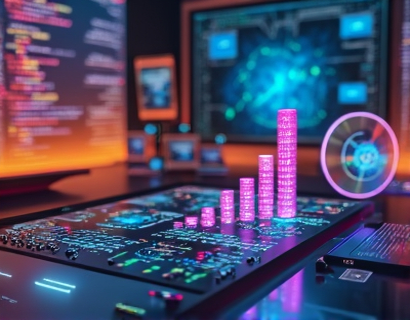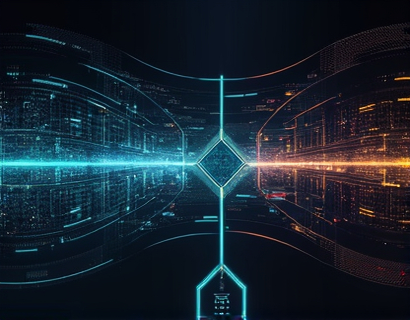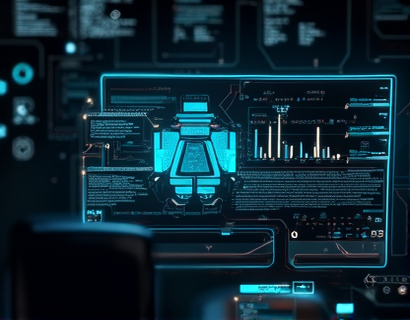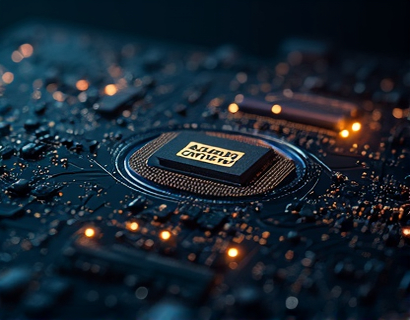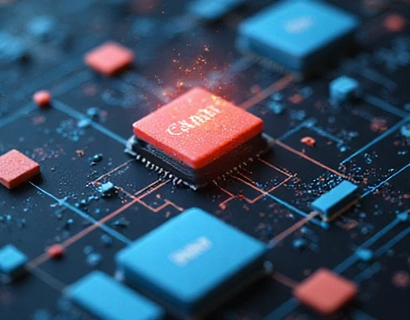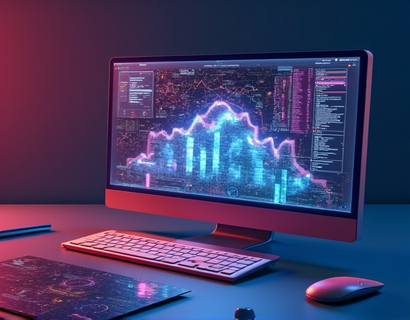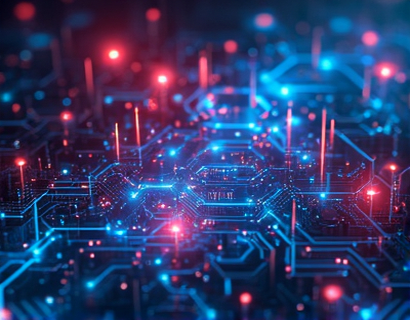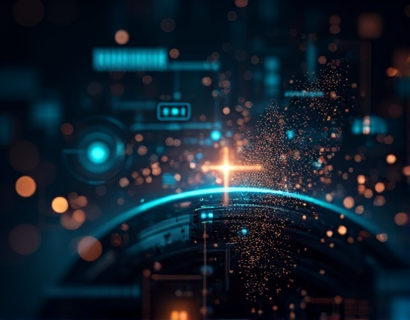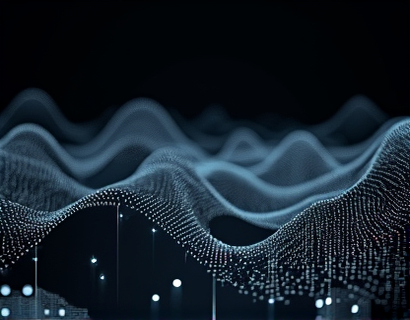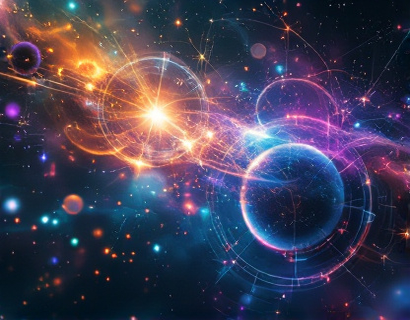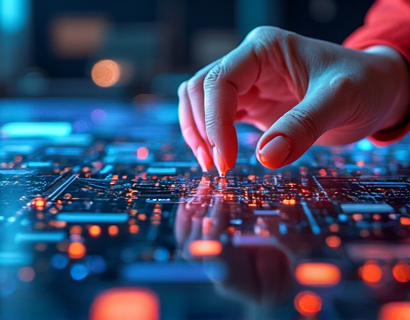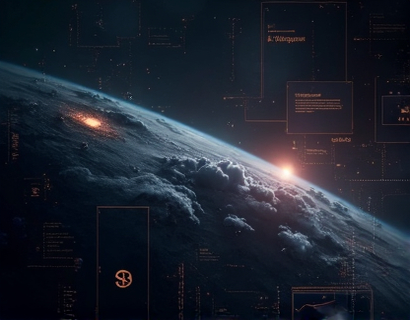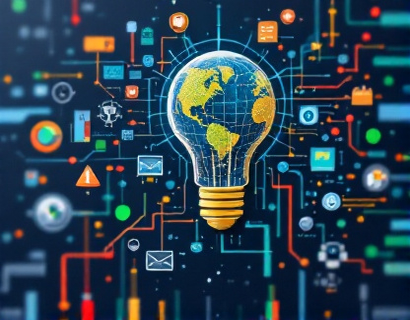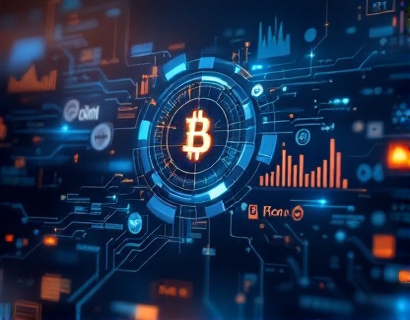Decentralized Productivity Enhanced: Leveraging AI and Crypto for Next-Gen Workflow Optimization
The modern professional landscape is rapidly evolving, driven by technological advancements that promise to revolutionize how we work and collaborate. At the forefront of this transformation are decentralized applications and artificial intelligence (AI), two powerful forces when combined, can significantly enhance productivity and streamline workflows. This article delves into the transformative impact of integrating AI and cryptocurrency into digital workflows, exploring how these technologies can create a more efficient, secure, and user-centric environment.
Decentralized applications, often referred to as dApps, operate on blockchain technology, which ensures transparency, security, and decentralization. Unlike traditional applications that rely on central servers, dApps distribute data and processing across a network of nodes, reducing the risk of single points of failure and enhancing data integrity. This decentralized nature not only improves reliability but also empowers users by giving them greater control over their data and interactions.
AI, on the other hand, brings intelligence and automation to the table. Advanced algorithms and machine learning models can analyze vast amounts of data, identify patterns, and make predictions or decisions with minimal human intervention. When combined with the decentralized infrastructure, AI can optimize workflows by automating repetitive tasks, providing insights, and enhancing decision-making processes.
Streamlining Tasks with AI
One of the most immediate benefits of integrating AI into workflows is the automation of routine and repetitive tasks. AI-powered tools can handle tasks such as data entry, scheduling, and even complex analytical work, freeing up professionals to focus on higher-value activities. For instance, AI-driven virtual assistants can manage calendars, send reminders, and even draft emails, significantly reducing the time spent on administrative duties.
Moreover, AI can enhance project management by predicting project timelines, resource allocation, and potential bottlenecks. Machine learning models can analyze historical data to provide accurate forecasts, helping teams plan more effectively and allocate resources efficiently. This predictive capability ensures that projects stay on track and meet deadlines, reducing the risk of delays and cost overruns.
Enhancing Collaboration through Decentralization
Decentralized platforms foster a new level of collaboration by removing intermediaries and enabling direct peer-to-peer interactions. In traditional settings, collaboration often involves multiple layers of approval and communication, which can slow down processes and create bottlenecks. Decentralized workflows eliminate these barriers, allowing team members to work together seamlessly and in real-time.
Blockchain-based collaboration tools ensure that all participants have access to the same version of documents and data, reducing the risk of miscommunication and errors. Smart contracts, self-executing contracts with the terms directly written into code, can automate agreements and transactions, ensuring that all parties adhere to the agreed terms without the need for intermediaries.
Security and Data Integrity
Security is a paramount concern in any digital workflow, and the combination of AI and decentralization offers robust solutions. Blockchain technology inherently provides a high level of security through its immutable ledger, making it extremely difficult for malicious actors to alter or tamper with data. AI can further enhance security by detecting and mitigating threats in real-time, identifying anomalies and potential vulnerabilities before they can be exploited.
Data privacy is another critical aspect where AI and decentralization shine. Decentralized systems allow users to maintain control over their data, deciding who can access it and under what conditions. AI can help manage and protect this data by implementing advanced encryption techniques and ensuring compliance with data protection regulations.
Optimizing Workflows with AI-Driven Insights
AI's ability to process and analyze large datasets provides invaluable insights that can optimize workflows. By leveraging natural language processing (NLP), AI can analyze unstructured data such as emails, meeting notes, and reports to extract key information and actionable insights. This capability helps teams identify trends, make data-driven decisions, and continuously improve their processes.
AI can also optimize resource allocation by analyzing workload patterns and suggesting the most efficient distribution of tasks. For example, AI algorithms can predict peak usage times and automatically scale resources to meet demand, ensuring that teams have the necessary tools and support when they need them most.
Decentralized Marketplaces for Workflow Tools
The rise of decentralized marketplaces is another exciting development in the intersection of AI and blockchain. These platforms allow users to discover, share, and monetize workflow tools and services in a transparent and trustless environment. Developers can create and distribute their applications directly to users, bypassing traditional gatekeepers and earning rewards in cryptocurrency.
Users, in turn, can access a wide range of tools tailored to their specific needs without the overhead of subscription fees or licensing costs. This democratization of tools fosters innovation and ensures that the best solutions rise to the top based on user adoption and satisfaction.
Challenges and Considerations
While the potential benefits are significant, integrating AI and decentralization into workflows also comes with challenges. One of the primary concerns is the technical complexity involved in implementing and maintaining these systems. Organizations need to invest in training and hiring talent with expertise in both AI and blockchain technologies.
Another consideration is the regulatory landscape. As decentralized applications and cryptocurrencies gain traction, regulatory frameworks are still evolving. Companies must navigate these uncertainties to ensure compliance and avoid legal pitfalls. Additionally, the energy consumption associated with blockchain, particularly proof-of-work systems, raises environmental concerns that need to be addressed.
Future Prospects
The future of decentralized productivity enhanced by AI looks promising. As technology advances, we can expect more sophisticated AI models that integrate seamlessly with blockchain networks, further optimizing workflows and enhancing user experiences. The development of more energy-efficient consensus mechanisms will also help mitigate environmental concerns, making decentralized systems more sustainable.
Moreover, the growing adoption of decentralized finance (DeFi) and non-fungible tokens (NFTs) is opening new avenues for creative and innovative applications. These technologies can be leveraged to create unique incentives, reward systems, and ownership models that align with the goals of modern workplaces.
In conclusion, the integration of AI and decentralization offers a powerful combination for revolutionizing digital workflows. By automating routine tasks, enhancing collaboration, ensuring security, and providing valuable insights, these technologies can significantly boost productivity and efficiency. As the ecosystem continues to evolve, organizations and individuals alike should stay informed and adapt to these transformative changes to stay ahead in the digital age.




